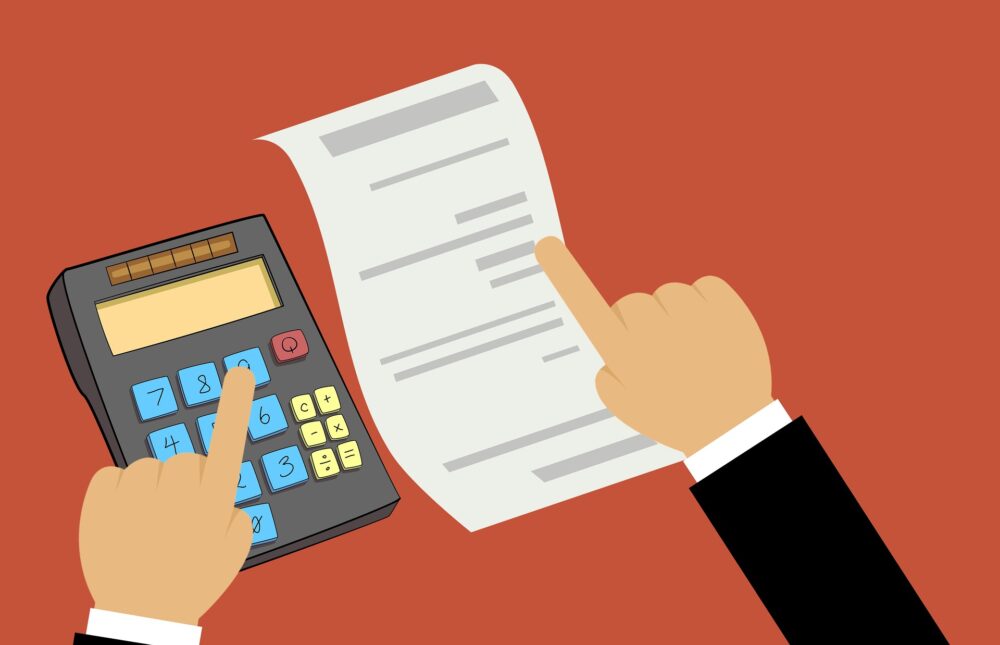What to do if you can’t pay and how to avoid delinquency
Some people do not pay their National Pension Pension for financial reasons.
If you fail to pay the National Pension Plan, you may receive a document or a phone call from the Japan Pension Service, but is there any problem if you continue to ignore it?
In this issue, we will explain what happens if you do not pay the National Pension Plan and what to do if you cannot pay.
Contents
Summary of this article
・People living in Japan between the ages of 20 and 60 are obliged to pay monthly pension premiums.
・Failure to pay will result in a decrease in future pension benefits. If you do not pay, your future pension will be lowered and you will not receive a survivor’s pension or a disability pension.
・If you continue to ignore payment, you will receive a notice or demand letter, which will result in seizure of your property.
・If you continue to ignore the payment, you will receive a demand letter or a letter of demand, and then it will be seized.
・If you have difficulty paying, you should contact the Pension Service and apply for an exemption.
1.Payment of Pension Insurance Premiums is Obligatory
First, we will explain whether it is necessary to pay the National Pension Plan.
All persons between the ages of 20 and 60 living in Japan are obligated to participate in the pension system.
This is the same for foreigners who have a domicile in Japan, and payment of insurance premiums is also determined by law.
・From when to when are you obliged to pay the National Pension Plan premiums?
You are required to pay monthly premiums between the ages of 20 and 60.
・Who is required to pay the National Pension Plan?
Company employees are enrolled in the Employees’ Pension Plan at their company.
Premiums are deducted from your monthly salary, so there is no need to worry about omission of payment.
It is those who are enrolled in the National Pension Plan that have a problem with non-payment of pension.
Specifically, they are sole proprietors, students, freelancers, unemployed persons, and foreign students, who are required to pay the monthly National Pension Insurance premiums by themselves.
In principle, monthly National Pension Insurance premiums must be paid by the last day of the following month.

2.If you are unable to pay, use the exemption system.
If you are unable to pay the premiums, use the “Exemption System”!
If you are unable to pay the premiums due to financial reasons, there is a system to “fully exempt” or “partially exempt” the premiums.
In addition, the exempted premiums can be paid retroactively (additional payment) within 10 years.
The following persons may be eligible to apply for exemption from premiums
・Students
・Those who have difficulty paying premiums due to economic circumstances
・Those who are unemployed or have closed their businesses, etc.
・Exemption applications can be made at the nearest pension office or the National Pension Section of the city, ward, town or village.
・Advantages of using the exemption system
Exempted premiums can be paid retroactively for up to 10 years.
If you do not apply for exemption, you may not be able to receive a survivor’s or disability pension in the event of death.

3.Failure to Pay the National Pension
Failure to pay the National Pension Plan will eventually result in the seizure of your property.
The property that will be seized includes savings, stocks and other securities, real estate, cars, and anything else that can be converted into cash.
If a person fails to pay the National Pension Plan, the following procedures will be taken
- telephone payment encouragement and door-to-door visits
- sending a special pension demand letter
- sending a final demand letter
- sending a letter of demand
- notice of seizure
Let’s review each of these procedures in detail.
Sending a Pension Demand Letter
If you continue to neglect the payment of your National Pension Insurance premiums, you will receive a “Pension Demand Letter.
The pension demand letter will arrive in blue, yellow, or red envelopes, depending on the number of times you have received the letter and the period of nonpayment.
Each color has a different level of importance, and if you receive a red envelope, you are likely to proceed to the next step.
Again, if you receive a pension demand letter, first consult with your nearest pension office or the National Pension Section of your municipality.
Silently ignoring the letter is the worst thing you can do.
If you do consult, it is important to record the date of the consultation, the name of the person in charge, and the content of the consultation, and to keep a history that you have “consulted” with them.
Sending of Final Demand Letter
If payment of the annuity is not confirmed by the payment deadline stated in the final demand letter, a demand letter will be sent.
The demand letter will contain a warning such as, “If you miss the payment deadline, we will proceed with the garnishment.
Since this is legally a prerequisite procedure for foreclosure proceedings, please pay the amount due promptly upon receipt of the demand letter.
Note: If you miss the deadline stated in the reminder letter, a late fee will be added to your account.
Please note that if you continue to ignore the demand letter, the overdue charges will also be calculated and collected.
This section explains what to do if you fail to pay the National Pension Plan or are unable to pay.
Continued neglect of National Pension Plan payments is very likely to result in the seizure of your property.
If payment is difficult, you may need to take advantage of the exemption system.

